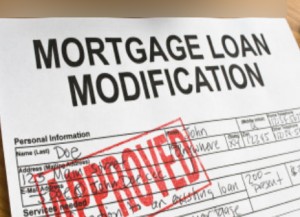By: Michael Powers
 According to a recent report by the Hope Now Alliance, HAMP loan modifications were down nearly 50% in 2012, as lenders and servicers shift their focus to “in-house” or proprietary loan modification programs. In addition, the report confirmed that 2012 saw less loan modifications than 2011, suggesting that the housing crisis may be showing overall signs of improvement.
According to a recent report by the Hope Now Alliance, HAMP loan modifications were down nearly 50% in 2012, as lenders and servicers shift their focus to “in-house” or proprietary loan modification programs. In addition, the report confirmed that 2012 saw less loan modifications than 2011, suggesting that the housing crisis may be showing overall signs of improvement.
 “Many of the HAMP modifications just did not make long term sense. In some instances, a HAMP modification would come back with a higher payment! Banks are more interested in creating a modification that makes sense and will last”, said California mortgage mitigation attorney Brian N. Folland. “We have seen a huge shift into more realistic loan modifications, as lenders aggressively attempt to clean up this mortgage mess. We are also seeing a huge spike in the frequency and amounts of principal reductions, suggesting a true correction of the housing bubble. In California specifically, lenders have also become leery of the CA Homeowner’s Bill of Rights. This gives us more leverage in our negotiations with lenders and has increased the frequency and magnitude of our successes in representing homeowners and making sure they get a fair shake. This is why having an attorney representing you is so important in mortgage negotiations”, added Folland.
“Many of the HAMP modifications just did not make long term sense. In some instances, a HAMP modification would come back with a higher payment! Banks are more interested in creating a modification that makes sense and will last”, said California mortgage mitigation attorney Brian N. Folland. “We have seen a huge shift into more realistic loan modifications, as lenders aggressively attempt to clean up this mortgage mess. We are also seeing a huge spike in the frequency and amounts of principal reductions, suggesting a true correction of the housing bubble. In California specifically, lenders have also become leery of the CA Homeowner’s Bill of Rights. This gives us more leverage in our negotiations with lenders and has increased the frequency and magnitude of our successes in representing homeowners and making sure they get a fair shake. This is why having an attorney representing you is so important in mortgage negotiations”, added Folland.
 The report also showed a 14% increase in short sales from 2011, further suggesting that lenders and servicers are aggressively pursuing lasting solutions. With nearly 1.9 million foreclosure starts in 2012, nearly 1.3 million homeowners reached a permanent solution via loan modification or foreclosure alternatives (short sales and deeds-in-lieu of foreclosure).
The report also showed a 14% increase in short sales from 2011, further suggesting that lenders and servicers are aggressively pursuing lasting solutions. With nearly 1.9 million foreclosure starts in 2012, nearly 1.3 million homeowners reached a permanent solution via loan modification or foreclosure alternatives (short sales and deeds-in-lieu of foreclosure).
Unfortunately, the report did not measure the percentage of gross delinquencies or litigations in 2012, leaving its readers to wonder what the 2013 foreclosure landscape might look like. In California, for example, recent consumer protection legislation suggests that litigations could very well escalate in 2013, as lender practices such as the “dual-track” foreclosure process have now been declared illegal. This measure will prevent lenders from proceeding with the foreclosure process while a homeowner is being considered for a modification or other foreclosure alternative.
